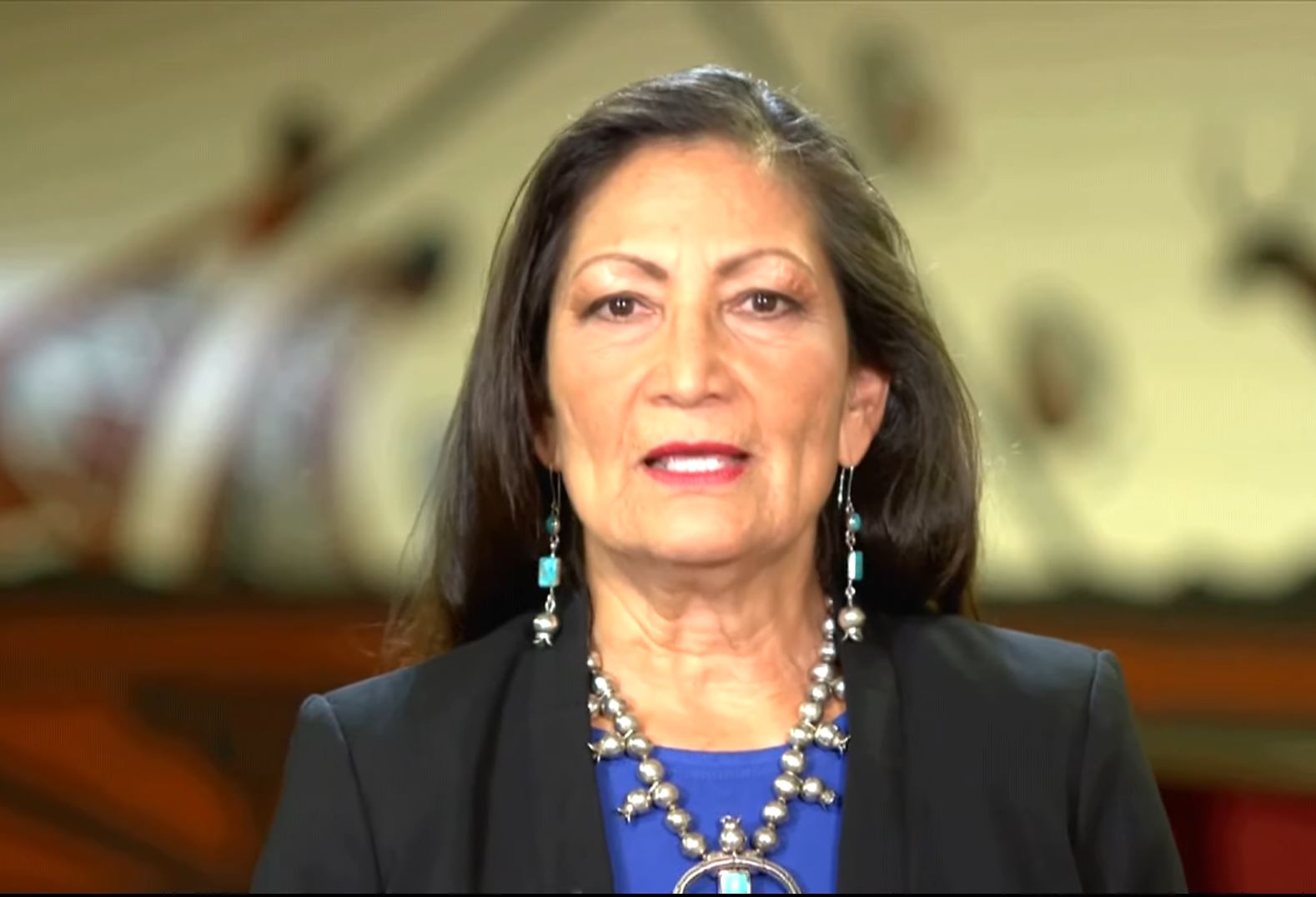I don’t support the Green New Deal.
— Candidate Joe Biden at the first presidential debate, September 29, 2020.
I lied!
— President-elect Joe Biden, by nominating Congresswoman Deb Haaland for Secretary of Interior, December 17, 2020.
Only one of these statements was actually spoken publicly by Joe Biden, now the President of the United States. It was the first one, to 84 million people, when he denied that he supported the Green New Deal.
The latter statement above is made up, but it accurately describes Mr. Biden’s strategy with the American public when they were focused on the presidential campaign at debate time.
This pithy quote, “I lied,” is a takeoff from a famous New York Post front-page headline in 1990 when then-President George H.W. Bush broke his promise not to raise taxes. In that case, it took Mr. Bush 17 months as president before he welched; in Mr. Biden’s case, it was 34 days before he became president.
How does a nomination constitute reneging on a campaign promise or position? Democratic Representative Deb Haaland unabashedly supports the socialistic absurdity that is the Green New Deal, opposes hydro-fracturing for natural gas, and opposes the Dakota Access Pipeline that transports nearly 600,000 barrels of oil to American consumers. As Secretary of the Interior, she would be in position to cut off domestic energy supplies.
The nomination of a climate radical like Rep. Haaland to this high-level post made a lie of President Biden’s campaign assurances, including his repeated claims to support fracking to ensure he won the pivotal battleground state of shale-rich Pennsylvania.
“Fracking is a danger to the air we breathe and the water we drink,” Ms. Haaland wrote back in 2017. Neither is true, which is why the Obama-Biden administration allowed fracking to proliferate during the eight years prior. Numerous studies have confirmed the health and safety of fracking, along with its economic benefits, while other studies and activists claiming the opposite have been discredited. The increased use of natural gas from fracking enabled the U.S. to reduce annually greenhouse gas emissions by 2 percent in 2019 and overall during the last 15 years.
Some Republican U.S. senators have expressed alarm at Rep. Haaland’s appointment, including Steve Daines from Montana and John Coryn from Texas. Sen. Coryn’s concerns about her opposition to pipelines and fracking are especially timely since his state, which is home to 60 percent of nation’s wind power, just reminded the world of the many fallacies of wind energy. Winter storms this week pounded Texas, and the growing number of wind turbines taking up its landscape froze to the point where the state lost half its wind power.
Objections to Ms. Haaland’s nomination for Interior Secretary are precisely why climate activists ardently support her confirmation. Understandably, tribal organizations support her for the Interior post as well based also on the historic significance of her being the first Native American to be nominated for a cabinet position.
The person to watch now is Senator Joe Manchin of West Virginia, the Democratic chairman of the Energy and Natural Resources Committee that will hold hearings (still unscheduled) on Rep. Haaland’s nomination. The coal and fracking industries remain vital to his home state’s economy – energy sources which are in the crosshairs of the Deb Haaland and the Biden administration.
Sen. Manchin once came out forcefully against the Green New Deal that is so embraced by Rep. Haaland, and he opposed other climate schemes such as Cap and Trade legislation. As chairman, he could single-handedly kill any nomination before his committee or extract commitments from the administration in exchange for approving the Haaland appointment.
Sen. Manchin has long talked a good game on energy issues and against the Green agenda, but until now was not in a position to influence any policy outcome. Today he could force a pullback in climate extremism from the Biden administration. The Haaland nomination is the first of many tests that will determine whether his rhetoric is genuine, or whether he cowers in line. Meanwhile, Sen. Coryn and others should fight this nomination to highlight the negative consequences for energy states like West Virginia, Texas, Pennsylvania, and the entire nation.
President Bush’s tax hike arguably contributed to the mild, ephemeral economic recession in 1991, which cost him re-election the following year. President Biden’s appointments of Rep. Haaland and others to impose the Green New Deal and curtail domestic energy sources will bring much greater harm to the nation’s economy and standard of living for years to come. Now 78 years old, a Biden re-election attempt in three years is unlikely, regardless, and beside the point.
